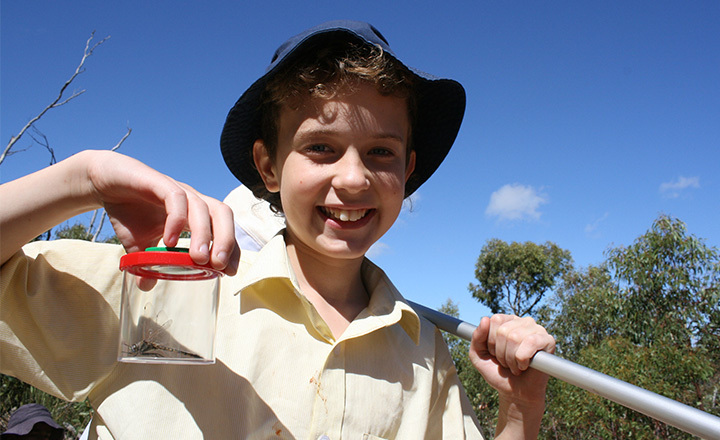November, 2022
SPARK Program Wins STEMM Educator of the Year Award
The Trinity College SPARK Program was announced as the winner of the STEMM Educator of the Year – Primary or Secondary School Level Category at the SA Science & Innovation Awards on Friday 25 November.
The Trinity College SPARK Program is a future-oriented STEM curriculum. Through an immersive five-day experience, students engage in interdisciplinary and technological themed learning activities that develop inquiry skills, computational thinking and creativity.
The design, implementation and evaluation of the SPARK Program at Trinity College has truly been a team effort and the impact on teaching and learning has been published in the Mathematics Education Research Journal.
As exemplary educators, innovative curriculum writers and contemporary researchers, the team of Samantha Andonis, Steve Grant, Wayne Jaeschke and Sion Harman are at the forefront of STEM education and are leading educational innovation throughout South Australia. Click on the image below to watch a short video about the Trinity College SPARK Program.
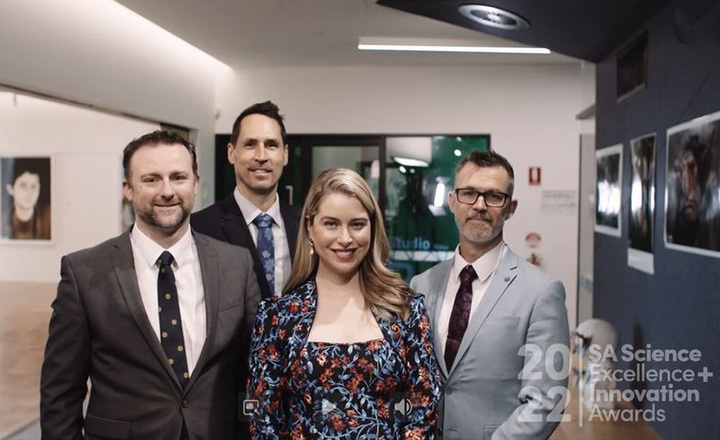
Trinity College has once again been recognised nationally with an Excellence Award in the Australian Education Awards 2022 Best STEM Program category for the ‘SPARK’ initiative.
The ‘SPARK’ initiative is a future orientated STEM and digital technology program. It involves seven specialist STEM educators facilitating a session and implementing pedagogical strategies to promote student agency and problem-solving, and to showcase how digital technologies can enrich learning.
One component of ‘SPARK’ is a 5-day immersive experience where Year 7 and Year 8 students engage in interdisciplinary and technological themed learning experiences that develop inquiry skills, computational thinking and creativity.
The SPARK immersive experience includes:
- Doctor Drones: Using the Engineering Design process, students collaboratively build a drone attachment to successfully fly medical supplies to the remote areas of Nepal. Designs, routes and written programmes were evaluated for efficiency to encourage refinement.
- Robotic Engineering: Students become robotics engineers needing to solve the technological challenges associated with autonomous cars. The robotic vehicles were coded to move at various angles and use advanced sensors to measure distances and aspects of tilting.
- Technology in Sport: To understand the role of data in society, students wore GPS trackers to monitor physical performance. Students applied scientific inquiry skills to inform goal-setting and team tactics.
- Mathematics of 3D printing: By applying mathematical concepts such as measurement and geometry, students were challenged to remodel the generic “spinning top”. 3D models were programmed using TinkerCAD, and once 3D printed, were tested and evaluated.
- Do Your Bit: Using the Design Thinking Process, students prototyped a device that would promote positive mental health. To establish empathy, students brainstormed the local and global social challenges faced by children, adults and the elderly. Once a target audience was selected, students created sketches and programmed the BBC Micro:Bit to sense environmental stimuli and incorporate user inputs.
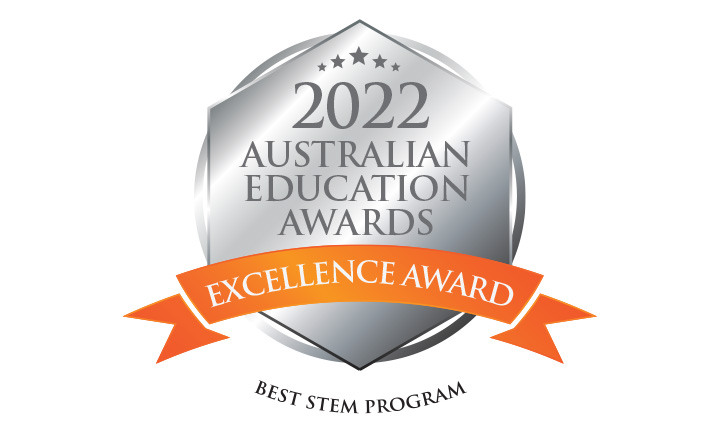
This award recognises excellence in the use of education technology by an Australian school. When judging this category the criteria considered was:
- How the technology has fulfilled a need in or outside the classroom
- Impact of the technology on the school
- Change management and implementation process
- Evidence the technology has supported student learning outcomes
The Trinity Innovation and Creativity School (TICS) in its first year of operation continues to help us meet the challenges of a greater reliance on technological solutions but permits us to explore new technologies, develop teacher capacity and lead the way with STEM programmes.
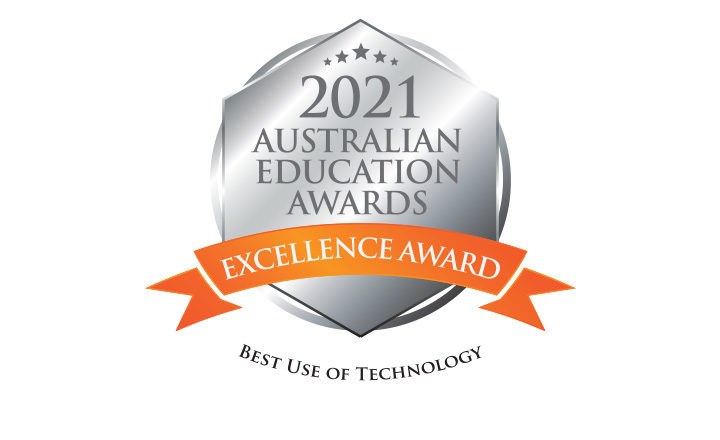
This award recognises the most outstanding professional (staff) learning and development program or initiative implemented in an Australian school. When judging this category the criteria considered was:
- Innovation and excellence in program design and delivery
- Demonstrated support for individual professional learning and links to individual and school-wide learning priorities
- Contribution to improved student learning outcomes
- Effective collaboration, reflection and feedback
Recently nine staff were presented with Professional Learning Certificates in Future Oriented Learning (PCFOL) which is a key component of the work of the Education Futures unit at UniSA to understand how to best implement and sustain innovation in schools. In 2020 staff participated in the PCFOL through the Trinity Research Institute This work is led by Mr Wayne Jaeschke (Director of Research & Learning Services) and the result is a whole-of-College engagement in data-informed professional learning that transforms education and builds new understanding about the way schools develop the capacities students need to flourish in a rapidly changing world.
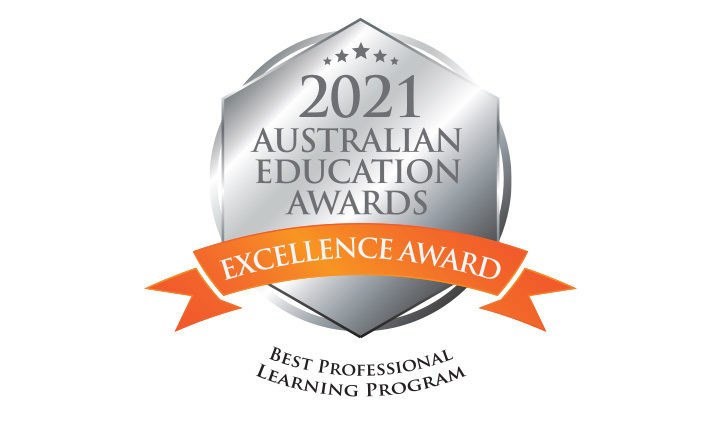
The College is thrilled to announce that STEM Co-Ordinator, Ms Samantha Wyatt has been acknowledged as the Best Department Head of the Year by the judges of the Australian Education Awards.
This award recognises the most outstanding department head in a school in Australia. When judging this category the criteria considered was:
- Demonstrated commitment and drive to lead
- Consistently high standards of teaching
- Leadership of innovation and improvement in curriculum delivery and student learning
- Commitment to professional development and collaboration with colleagues to address student learning needs
- Engagement with parents and the wider school community
This National recognition for us as an organisation acknowledges how we are leading the way with the teaching of new skills, outstanding staff professional development offerings and immersing the learning experience for our students across the curriculum with technology.
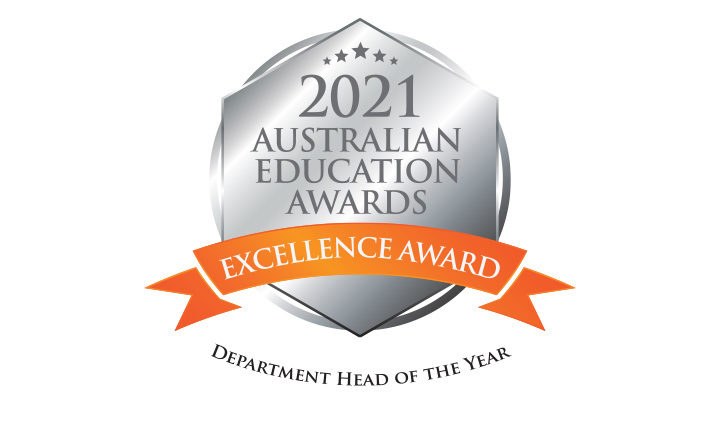
The Trinity Innovation & Creativity School (TICS) completed in December 2019, was named as an Australian Education Awards 2020 Finalist in the category of, Innovation in Learning Environment Design.
The new school building (TICS) is the result of a rigorous consultation process between architects, educators, students, parents, our wider community and with our university partners. The design was informed by a growing body of knowledge in learning design for the 21st Century and reflects the increasing dependence of technology in the workplace, along with greater need for critical and creative, collaborative working skills.
The TICS design features spaces intended to reflect that pedagogical shift – with flexible, fluid spaces; being multi-textural and multi-purpose; with embedded and integrated collaborative ICT services; break-out spaces alongside classrooms and a lecture theatre, with facilities for VR and 360-degree immersive environments.
Technology chosen for TICS reflects the need for students to be across industry standard tools in a variety of different areas. Additive manufacturing (commercial grade 3D printers), virtual reality and 360 projection are examples of technologies that are becoming key for students to participate in emerging industries.
The College is developing in students a self-directed approach to learning. This learning space gives students the opportunity to develop greater ownership of the learning environment. From the ability to make their own room bookings, to the many breakout spaces on offer, the design of this learning space enables students to craft their own experience. For example, view Year 8 student Ryan who has produced his own podcast “The Road to the Big Time” available on Spotify and Youtube.
Trinity College seeks to improve educational practice to support young people to succeed personally and academically at school and, in their lives beyond school. With our University partners, Trinity has co-developed a research agenda which has deepened the capacity of teaching staff to engage in powerful and purposeful reflection and evaluation of educational practices within this new space. Teachers will be upskilled in educational research, and contribute to the growing body of knowledge in 21st Century learning spaces through Masters and PhD study and publication.
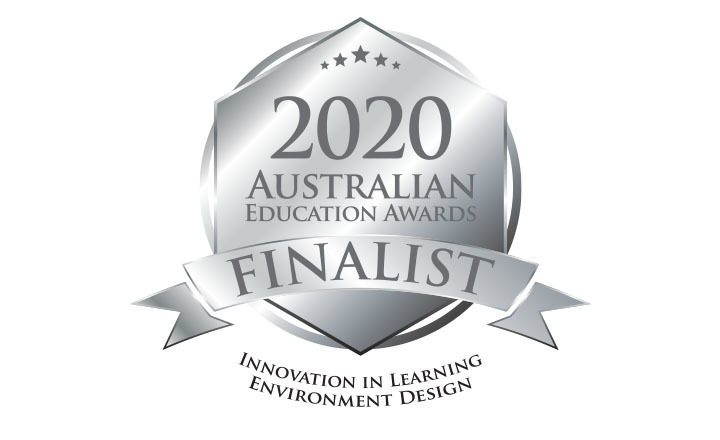
Citizen Science - Insect Investigators
In March Trinity College was one of 50 schools invited to participate in an exciting citizen science project called Insect Investigators. Set up in 2019 by the University of Adelaide, the South Australian Museum and the Centre for Biodiversity Genomics in Canada, the project aims to bring together experts and schools to discover, describe and document Australia’s biodiversity.
Year 7 Science classes at Blakeview and Gawler River schools collaborated to undertake the project on behalf of the College. They engaged in a live-stream workshop with the team of experts at the University of Adelaide to learn more about the project and how to collect, observe and identify insects that live on our Blackham site. A Malaise Trap was set up and students travelled to Blackham to begin collecting and returning trap bottles to the experts.
The samples collected were then sent to the SA Museum and then to Canada for genetic barcoding. The first round of DNA barcoding results has just been released and;
- 70% of the samples collected by our students were not collected by any other school involved in the project and
- 49% of the species our students collected do not currently exist in the DNA barcode library - many of these may be species that are new to science!
If a new species is discovered on our grounds, our students will have the opportunity to work with taxonomists to name it! We will keep you updated with the progress of our intrepid Insect Investigators!
Visit the Insect Investigation website to see our full results.
